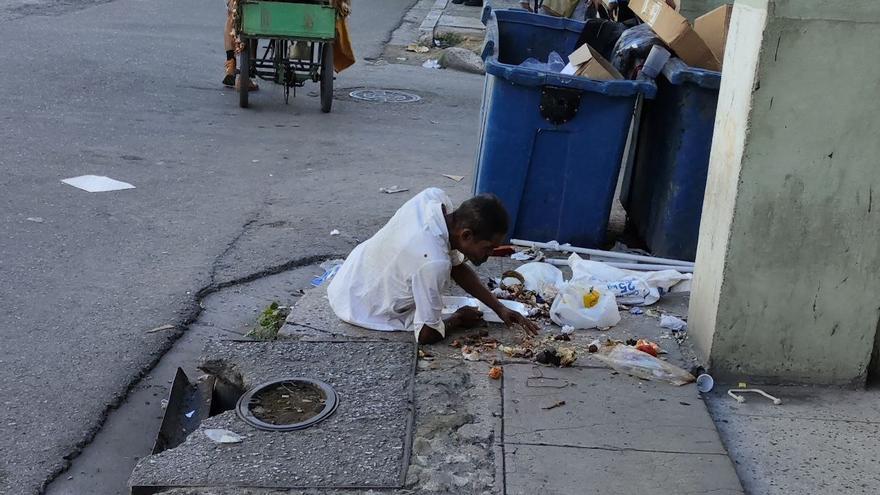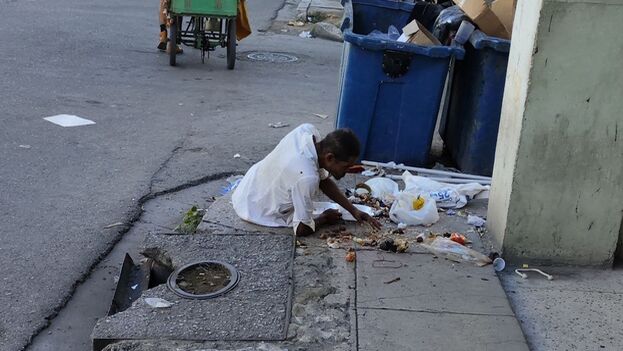
14ymedio, Madrid, February 12, 2024 — Cuba has fallen thirty places in the Human Development Index (HDI) prepared by the United Nations in just 15 years and is at risk of moving from the group of States at a high level to a medium level, which would mean a severe blow for the Government, which for years has displayed this indicator – which, along with income, takes into account the life expectancy and literacy of the population – as one of its great successes. The data is even more worrying if one observes that in 1995, in the middle of the Special Period*, the Island was 13 positions higher than it is today.
The figure appears in an article published this Monday by the left-wing anti-capitalist media Kaosenlared entitled Cuba, Poverty and Data, signed by the economist, former spy and retired journalist Manuel David Orrio del Rosario, author of several recent articles very critical of the government policy. It cites several indicators about the worsening living conditions of Cubans, drawing attention to the two pillars on which the Revolution built its international myth, Education and Health, measures historically favored by the regime.
The HDI divides countries into four groups: very high (current index greater than 0.8), high (from 0.7), medium (more than 0.55) and low (all others). In 1990, Cuba was ranked 53rd in the world (with 0.68, which was then its highest score) and in 1995, during the Special Period, it fell to 70th place. However, coinciding with the beginning of the Venezuelan subsidy, Cuba recovered lost ground and climbed to position 55 (in 2007). In 2018, a decline began, later aggravated by the pandemic, which has taken it to 83rd place in the world ranking, with a score of 0.764.
As the article presents it: “The numbers are relentless: according to the economist and demographer Dr. Juan Carlos Albizu-Campos et. al., in recent years the largest of the Antilles is declining in its life expectancy at birth, its access to education and work and income, all of which would explain its drop of 30 places in the Human Development Index and would create the possibility that it would cease to be a country of High Human Development and become one of average.”
Another of the devastating data that appears in the text is the Gini coefficient, which has gone from 0.22 in 1989 to more than 0.45 in 2022. The number measures the inequality of the population in a figu


